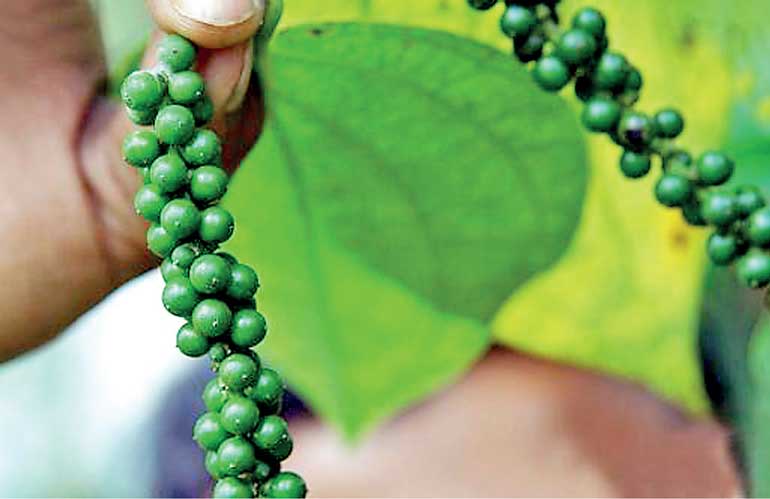Wednesday Feb 18, 2026
Wednesday Feb 18, 2026
Monday, 23 October 2017 00:00 - - {{hitsCtrl.values.hits}}
The Global Pepper Conference organised jointly by the Primary Industries Ministry, the Export Agriculture Department of Sri Lanka and the International Pepper Community will hold its 45th annual session from 30 October to 2 November at the Earl’s Regency Kandy, Sri Lanka.

President Maithripala Sirisena will be the Chief Guest and Primary Industries Minister Daya Gamage will participate as the guest of honour at the annual session.
The delegates of the member counties i.e. India, Indonesia, Malaysia, Sri Lanka and Viet Nam along with other distinguished invitees will participate at the deliberations which will be chaired by IPC current chairman Eng. Bandula Wickremaarchchi, the Secretary to the Primary Industries Ministry, Colombo.
The IPC has invited exporters of pepper and other spices from the IPC member countries to participate at this year Pepper/Spice Exhibition to promote the pepper/spice products.
Participants at the exhibition include manufacturers of pepper/spice processing machineries, leading pepper/spices players, producers, exporters, processors and government officials from the IPC member countries and also other producing and consuming countries.
A release issued by the IPC said that the Government Sri Lanka has considered that pepper, in addition to cinnamon, was the most important export spice commodity. Quoting Secretary of the Primary Industries Ministry of Sri Lanka Bandula Wickramarachchi, who opined his views at the recent IPC Committee Meeting on Marketing, held in Bogor early this year, (during 27-28 April) had said that the Sri Lanka Government considered pepper the most important spice next to cinnamon.
At the Sri Lanka Session, the delegates of the member countries are due to revise the IPC Standard Specifications for Pepper and Pepper Products adopted subject to approval, at the 43rd Session of IPC held in Mysuru, India in November 2015.
The International Pepper Community (IPC) established in the year 1972 under the auspices of the United Nations Economic and Social Commission for Asia and the Pacific (UN-ESCAP), is an intergovernmental organisation of pepper producing countries. The Community now includes India, Indonesia, Malaysia, Sri Lanka and Vietnam as permanent members and Papua New Guinea, Philippines as associate members.
Membership to the Community is open to all pepper producing countries, with the unanimous consent of the existing members and by acceding to the agreement establishing the Pepper Community.
The IPC Secretariat located in Jakarta, Indonesia is headed by an Executive Director.
The release issued by the IPC has stated the following as objectives and functions of the International Pepper Community.
They are meant to promote, co-ordinate and harmonise all activities relating to the pepper economy with a view to achieving the following broad objectives: